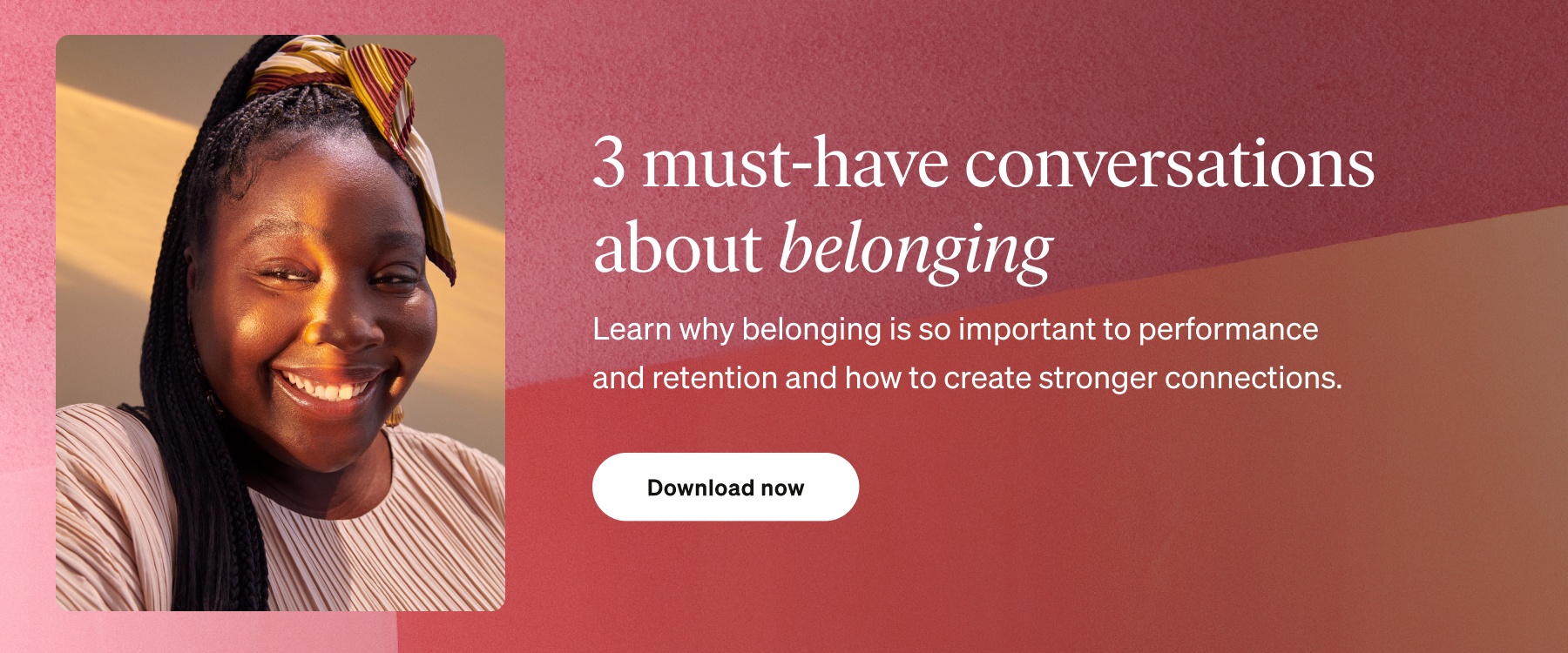When people don’t belong, they will go to extremes to fix it, like seek another employer.
Of the four concepts that comprise DEIB (diversity, equity, inclusion, and belonging), belonging may be the most elusive. Organizational leaders struggle to define it and measure it, two factors that result in belonging getting relatively less emphasis in diversity and inclusion initiatives.
Belonging is the sense of acceptance and inclusion in a group or organization.
And it is crucial. Nearly 30 years ago, the belongingness hypothesis was proposed by researchers Baumeister and Leary, who suggested that human beings have an almost universal need to form and maintain at least some degree of interpersonal relationships with other humans. This is why creating an inclusive culture where people feel they belong can be so incredibly powerful in retaining talent.
When people feel they belong, the workplace can be a source of meeting this foundational human need. What is stickier?
More than that, consider how belonging drives other organizational behavior. Behaviors like exerting power, creating intimacy, seeking approval, driving toward achievement and generating positive affiliation with others all stem from the underlying need to belong. When people don’t belong, they will go to extremes to fix it, like seek another employer.
We know conceptually that belonging has a wide impact on one’s own behavior and life. So we decided to take a more in depth look at our Member data to understand whether belonging is a key driver of overall satisfaction in life.
What the data say
Looking across thousands of BetterUp members, we have seen a significant correlation between belonging and life satisfaction. People with high belonging have 43% higher life satisfaction. When you think about what few things in our lives actually make a dent on overall life satisfaction, that’s pretty important.
We have also seen that belonging creates a deeper embeddedness for employees. People who feel they belong have 34% higher intent to stay at their organization and are 167% more likely to recommend their company as a great place to work to others.
But it’s not just retention that creates a return-on-investment for belonging. There are also gains in productivity and overall performance. If all workers at a 10,000-person company felt a high degree of belonging, productivity gains would top $52 million a year.
Why it matters
Belonging something that matters to everyone. In fact, whether looking at geography, race, gender, or ethnicity, rates of loneliness are equivocal. Helping people find belonging in their teams and in the organization, helps them feel a sense of interconnectedness to others. Building cultures where people feel they belong is going to inspire higher commitment to the organization.
When organizations ignore the belonging piece of the DEIB puzzle, they often continue to have diverse representation issues — especially at the higher levels of the organization. This can leave leaders scratching their heads wondering why their recruitment efforts or bias training are not moving the numbers. But if belonging hasn’t been a central part of the strategy, any diversity intervention can fall flat.
The bottom line is: when organizations don’t foster belonging, diverse talent will seek other employers who will. But when organizations make the investment in a truly inclusive culture where everyone can feel they belong it can profoundly impact the lives of their people. And this is how the leaky diverse talent pipeline can close.





